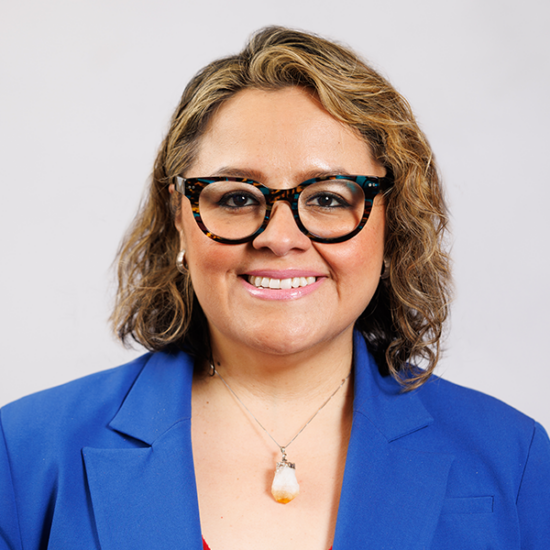The MEd in Urban Higher Education: Department of Educational Policy Studies
The Urban Higher Education master’s degree program prepares social justice-oriented leaders to work in community colleges, four-year colleges, and university contexts. We primarily focus on urban city settings, which creates a unique context for this program.
The experiences, knowledge and skills gained from this program can prepare graduates for the competitive pursuit of positions in public or private institutions. Graduates could find opportunities in entry level and mid-level college and/or university leadership positions. Potential areas of professional opportunity include residence life and campus housing, student activities, Greek affairs, recreation center/sports, academic advising, admissions, financial aid, and administrative support. In addition, the transferable knowledge and skills of this program could help graduates pursue opportunities outside of a college or university setting. Another option and benefit of the program is preparation for a doctoral program.
Currently, there are two areas of emphasis: Leadership, Governance, Organization and Policy; Institutional Research for Decision Making.
Degree Requirements
Degree Requirements
Overall: 36 credit hours
Required courses: 20 credit hours
Recommended electives: 16 credit hours
Faculty
Frequently Asked Questions
Commonly asked questions about the MEd Urban Higher Education program.
What is the focus of the MEd Urban Higher Education program?
The program has two main foci – the urban context and the importance of organizational leadership in addressing the opportunities and challenges present in urban centers. The program’s urban focus gives it a unique perspective in comparison with leading programs throughout the country.
How long does the program take?
This is a 36-hour master’s degree program. Students who take two courses per fall and spring term plus one additional course in the summer will complete the program in two years. Students may complete the program more quickly by taking more courses each term, including the summer.
Is transfer of course credit allowed?
Transfer of course credit is not automatic and requires approval of program faculty. The UIC Graduate College permits no more than 25 percent of the hours to be transferred into the degree. The MEd in Urban Higher Education will only transfer 8 credit hour of relevant coursework if approved by the program coordinator. For more information about credit transfer procedures, please consult the UIC Graduate Catalog.
Can I hold a job while in the program?
Yes, many students in the program will hold a job as practicing higher education administrators. Evening course meeting times help to reduce conflicts between work and academic schedules.
When do the courses meet?
College of Education courses typically meet once a week in the evenings (5 p.m.–8 p.m.) Monday through Thursday.
Is the GRE required?
No, the GRE is not required.
Do I need an undergraduate degree in education to apply for the MEd in Urban Higher Education?
Students are welcome from a variety of academic backgrounds. What is critical is an interest in higher education.
What can I do with a degree in Urban Higher Education?
The leadership focus will provide an excellent academic and practical foundation for those who seek a position in higher education at the state level, or in private or nonprofit organizations that require higher education expertise.
Please see the How to Apply page for this program for application instructions. Any questions about starting or completing your application should go to Ana Valenta at agarci5@uic.edu.
Please see the How to Apply page for this program for application instructions. Any questions about starting or completing your application should go to Ana Valenta at agarci5@uic.edu.
Can I afford the degree?
UIC makes every effort to help students pay for the cost of going to college. Our College Financial Aid page can help answer your questions.
Review the UIC tuition and fee schedule and find out more about billing and payment options.
The University of Illinois at Chicago offers six basic types of financial aid for graduate students: fellowships, assistantships, tuition-and-selected-fee waivers, traineeships, loans, and employment. Applicants for these types of aid must be admitted to a graduate degree program or have a completed application pending. Eligibility for loans is determined by the Office of Student Financial Aid. Applicants for loans should go directly to the Office of Student Financial Aid. Applications for fellowships, assistantships, and tuition/fee waivers are available in the department office, the Graduate College Office, and on the Graduate College website. In the administration of these programs and in selecting students for participation in them, the University of Illinois at Chicago adheres to the Nondiscrimination Statement on the Office for Access and Equity website.
Can I get housing on campus?
Yes. It is best to apply as soon as you know you want to live on campus, because applications are prioritized by date of application. Visit campus housing to find out more and submit your application.
What student support does the College of Education provide?
UIC offers many support programs and opportunities that encourage academic success. Program advisors and the College of Education Office of Student Success connect students to UIC resources.
The Equity and Excellence in Urban Higher Education Scholarship is available to students enrolled in the program. Learn more here:
https://education.uic.edu/admissions/financial-aid-tuition/scholarships/eeuhe/
The College of Education also offers one-time emergency funding for students facing extenuating circumstances that threaten their enrollment in the program. Contact the Office for Student Success for more information.
As of 2023, the College of Education has established a partnership with the Jane Addams School of Social Work. As part of this collaboration, the College offers a Wellness Specialist from the Master’s in Social Work program, who is available three days a week and can be contacted at educationwellness@uic.edu.
Does the Urban Higher Education program offer Graduate Assistantships?
While we do not directly offer Graduate Assistantships with admission, we do partner with UIC Student Engagement units which are eager to hire our graduate students. Every spring we partner to host The Urban Higher Education & Student Engagement Interview Day where admitted students (who apply by the priority deadline) are invited to interview for various graduate assistant positions across multiple student affairs positions. These positions include but are not limited to student transitions and engagement, fraternity and sorority life, new student and family programs, university housing, student leadership, and student engagement, to name a few. Please apply by the priority spring deadline for full consideration.
There is potential for various appointments to become available throughout the academic year as the University and College receive funding for research projects. We are committed to sharing information about new positions via our Listservs.






